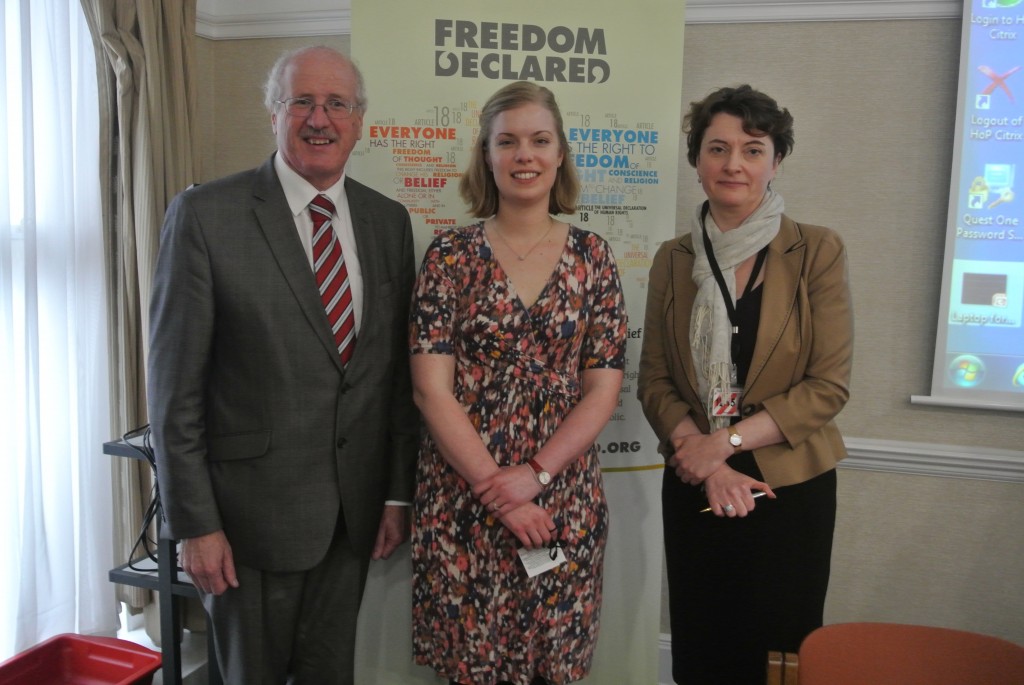On 17th November the All Party Parliamentary Group for International Freedom of Religion or Belief, in collaboration with Open Doors UK, held a briefing Extremism in Nigeria: A Threat to Regional Security?
During the briefing, parliamentarians, media representatives, members of expert organisations as well as members of the public heard from witnesses to Boko Haram’s atrocities, academics, and individuals working on the ground in Nigeria to support communities affected by terrorist attacks.
The event focused on the rise of extremism in Nigeria, particularly analysing recent surges of violent activity by the terrorist group, Boko Haram. Last year Boko Haram overtook ISIS as the world’s deadliest terrorist group: deaths attributed to Boko Haram increased by 317 per cent in 2014 to 6,644. (Institute for Economics and Peace report – ISIL was responsible for 6,073 terrorist deaths.)
In the light of such statistics, the session provided a thorough briefing and opportunity to assess the regional threat posed by extremism in Nigeria and how the UK should respond.
The panel included Comfort*, a Christian woman who was held captive in a Boko Haram camp last year after the killing of her husband and two sons; Suleiman*, who oversees the work of Open Doors in West Africa and provides practical support to Christians facing persecution; and, Father Atta Barkindo, a PhD Research Candidate at SOAS, University of London who is currently researching History, Memory and Resistance in Northern Nigeria: The Transformation of Boko Haram.
The speakers touched upon the various forms of discrimination and persecution Christians face at the hands of extremists, including the lack of freedom to worship, to build churches, the denial of promotion in the workplace and limited access to medical treatment from state-run hospitals.
The abduction of Christian girls is also a significant issue. The briefing outlined the case of a 16 year old girl abducted by extremists under the guise that they would take her to school but with the true aim to forcefully convert her to Islam. Disheartingly, this is just one example of what many Christian girls experience, as demonstrated with the Chibok schoolgirls.
Within schools, children are also being fed narratives of intolerance and hatred with extremist versions of Islam being commonly taught to children from early in their schooling. The meeting heard accounts that Muslim and Christian children were being separated for Religious Studies, leading to increased divisions between the two groups. Even with the physical destruction of Boko Haram, their poisonous ideology would remain pervasive unless the teaching of religious education in some schools is altered.
Additionally, Boko Haram exploits local knowledge from people, who cooperate out of fear, to carry out selective killings as well as targeted desecration of Christian properties. This further exacerbates the distrust within communities, particularly between Christians and Muslims.
To overcome the threat of Boko Haram, the panellists made the following recommendations with which the UK government can help:
- Help to build regional security in countries surrounding Nigeria, countries often entered by Boko Haram
- Aid with the development of the education system to promote education that counters extremist ideologies taught in some madrassas
- Help Nigerians of all faiths find a common identity to better ensure stability and combat extremism
- Ensure that aid funding provided to Nigeria finds its way to help individuals in need on the ground.
*names changed for security reasons


